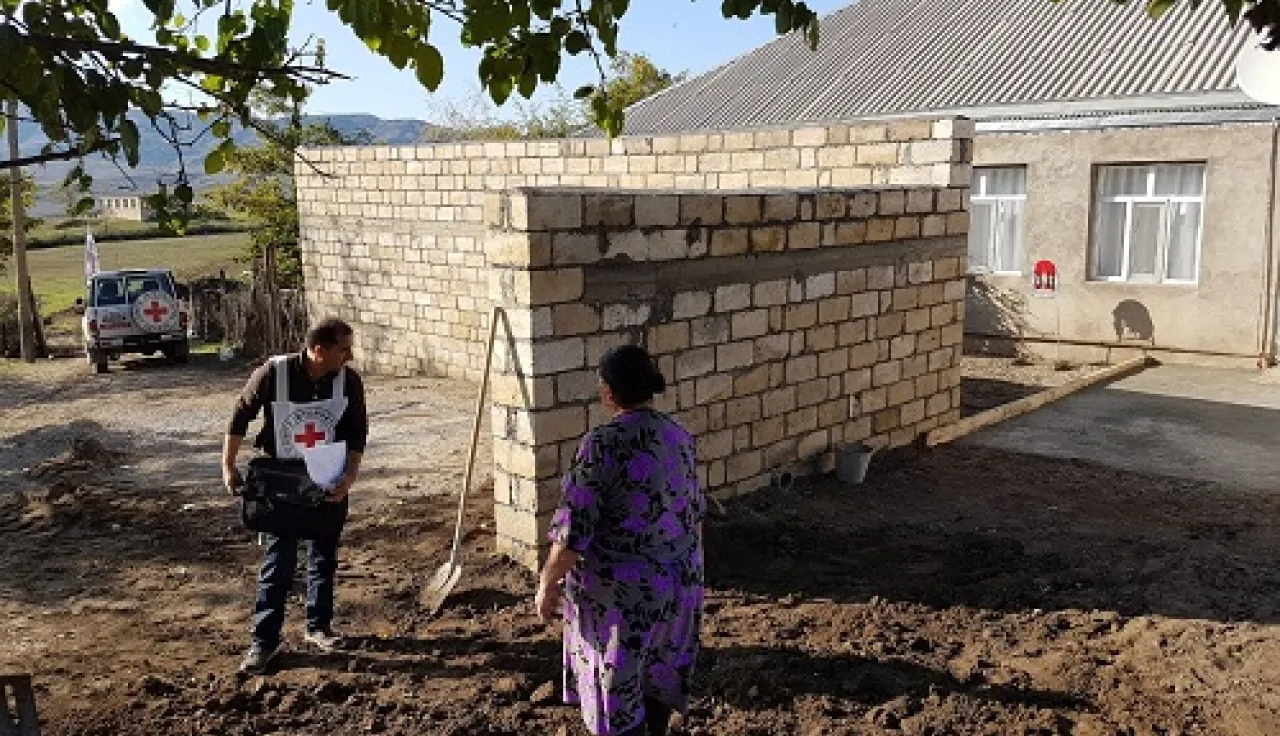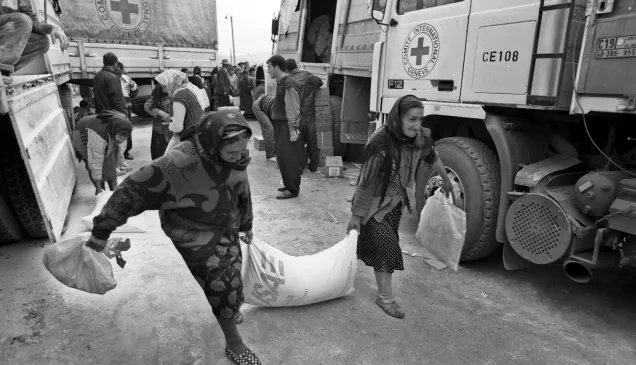Our work in Azerbaijan between January and June 2017

Supporting people affected by the Nagorno-Karabakh conflict
The Nagorno-Karabakh conflict continues to affect lives of people in frontline communities. Civilians living in exposed areas are in need of increased humanitarian protection and economic stability. More than 4500 people from the conflicting sides went missing during the war. Humanitarian consequences of the conflict remain focus point of our activities in the regions.
The International Committee of the Red Cross (ICRC) has been carrying out various activities throughout the first half of 2017 to safeguard families and civilian infrastructure in war affected villages, provide access to clean and reliable supply of water, and give the most vulnerable an opportunity to generate sustainable additional income to support their livelihoods. We also regularly visit persons detained in relation to the Nagorno-Karabakh conflict, and closely work with the state authorities to clarify whereabouts and fates of missing.
Within the framework of cooperation with national society, the ICRC supports Azerbaijan Red Crescent Society (AzRCS) to strengthen its capacities in first aid, and emergency preparedness and response. We also closely work with the AzRCS to identify the most vulnerable households in frontline communities selected for economical support.
Highlights of our works in Azerbaijan between January and June 2017
| 3000 individuals benefited from the ICRC's neutral intermediary role facilitating civilians' safer access to exposed fields to plant, harvest and repair 3 boreholes. | |
| 1080 people restored or improved their access to water with the ICRC support for upgrading of the water supply infrastructure. | |
| |
600 individuals benefited from community shelter which was reinforced and equipped with the basic essentials. |
| |
583 relatives of missing people drew psychological support from commemoration events, peer-group sessions or individual home visits. |
| |
540 individuals (120 households) profited from increased family income due to participation of a family member in the projects to improve conditions in frontline communities. |
| 692 individuals were briefed about safer behavior to adopt in case of shooting/shelling. |
For more information, read the full update on our work in Azerbaijan.



